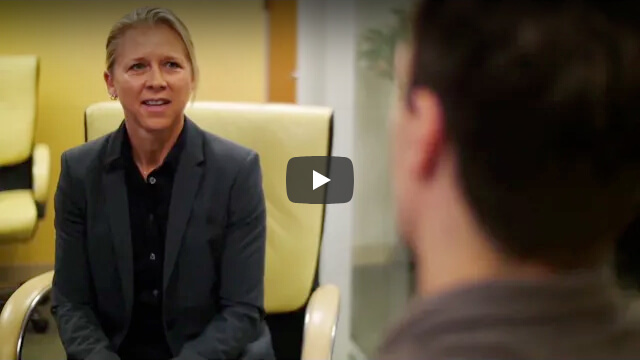When you understand the deposition, you’re in a better position to negotiate a valuable settlement.
During your personal injury case, there will be a deposition. The deposition is a formal questioning and sworn testimony under oath from the involved parties and witnesses.
The deposition phase is a key aspect of the discovery process, which is the evidence-gathering period of your case. Testimony from the deposition transcript will be recorded as evidence.
Let’s take a closer look at how the deposition in a personal injury case works and what it means for your personal injury claim. With the help of your lawyer, you can glean important information from the deposition that could improve your odds of a favorable outcome.
Who is Deposed in a Personal Injury Case?
Generally speaking, anyone who is alleged to have information about your case can be deposed for witness testimony, including:
- Investigating police officers
- Medical professionals
- Eyewitnesses
- Clerks who may have come into contact with relevant documents
- Friends and family members who may have seen or heard pertinent details
The court has the power to ensure a deposition takes place. Witnesses who are not forthcoming may be compelled by subpoena to testify or face fines and possibly jail. An individual can also challenge such a subpoena by filing a motion with the court.
A court will sometimes release someone from testifying for a variety of reasons. There might be procedural errors related to the subpoena or the person could convince the court that testifying involves unreasonable conditions like receiving short notice or traveling more than 100 miles.
What is the Purpose of a Deposition?
There are several reasons for attorneys on both sides of a case to initiate depositions:
- To collect eyewitness testimony
- To compel information from otherwise uncooperative sources
- To preview an individual’s testimony before they step on the witness stand
- To present the opinion of specialists like crash investigators and doctors
Depositions often take place at an attorney’s or court reporter’s office. A deposition can also be held at another court-approved location that may be more convenient for a witness.
At the deposition, representatives from both sides have the opportunity to question the individual being deposed. Representatives may simply observe the questioning and are also permitted to enter objections into the official transcript of the deposition.
What’s the Best Way to Handle Being Deposed?
Follow your lawyer’s lead on the rules and procedures of the deposition. If you’re being deposed during a case against a negligent person, here’s what you’ll typically experience.
During the deposition, the negligent party’s lawyer is likely to ask you certain questions designed to shift some of the liability for the accident onto you. You and your representative will have an opportunity to respond and object to the questions.
Generally speaking, you should give short, factual responses that don’t volunteer extra information. You can refuse to answer a question during a deposition under certain circumstances:
- The answer would require you to divulge privileged information, such as private conversations with a mental health professional, your spouse, or a member of the clergy.
- The answer would lead you to incriminate yourself. The Fifth Amendment to the Constitution of the United States allows you to refuse to answer a question that would implicate you in a crime.
- You object to the question because you feel that it’s designed to harass you.
On the third point above, the attorney who posed the question can rephrase it or make a case for why the question must be answered. If an agreement cannot be reached, you may suspend the deposition and ask the court to order the question excluded.
Bear in mind that attorneys are generally afforded substantial leeway to pose questions that people find intrusive. As a result, the deposition process might be emotionally draining for you.
Here’s Why Personal Injury Cases Often Settle After Depositions
Negotiations in personal injury cases typically happen before, during, and even after a trial. The parties often continue negotiating back and forth until they reach a settlement.
It’s common for a settlement to be finalized during or after the deposition phase of a personal injury trial. That’s because the deposition serves as a test that tells the lawyers what kind of evidence the other side has to bolster their case.
The deposition may reveal that you have numerous witnesses providing compelling evidence against the other person. This could make them and their lawyer feel far more open to negotiation. Or it may make them feel even more determined to go to court and hope a judge or jury sees their side.
By the end of the deposition phase, each party is likely to have gained a much clearer sense of the relative strengths and weaknesses of the case. This new outlook often sparks a renewed interest in negotiating a settlement and wrapping things up.
A Good Attorney Uses the Deposition to Your Advantage
An experienced accident lawyer knows how to take advantage of the deposition process to advance your negotiating position and protect you from liability. They’ll look for ways to put the deposition to work for your side, even if the case goes to trial.
This is a big reason why people with lawyers get higher compensation – and why they get it more quickly than those who handle it alone. A seasoned personal injury lawyer looks for every opportunity to secure the best possible outcome for you and to get you the compensation you deserve.
Make sure you negotiate your settlement skillfully with the help of an experienced personal injury attorney. At Sally Morin Personal Injury Lawyers, we offer a free consultation with a caring and qualified attorney who knows how to get the job done right.
We Handle Your Accident Claim So You Can Focus on Your Life
After a personal injury, contact the attorneys at Sally Morin Personal Injury Lawyers. We handle many areas of the law, including many kinds of personal injuries. We believe you should be able to focus on recovering while we handle the legal details of your personal injury lawsuit.
We truly care about the people of California. Contact us today for a free online case evaluation.

